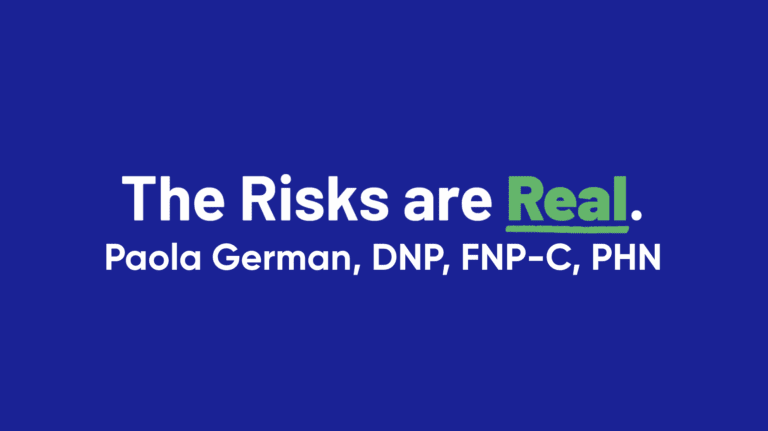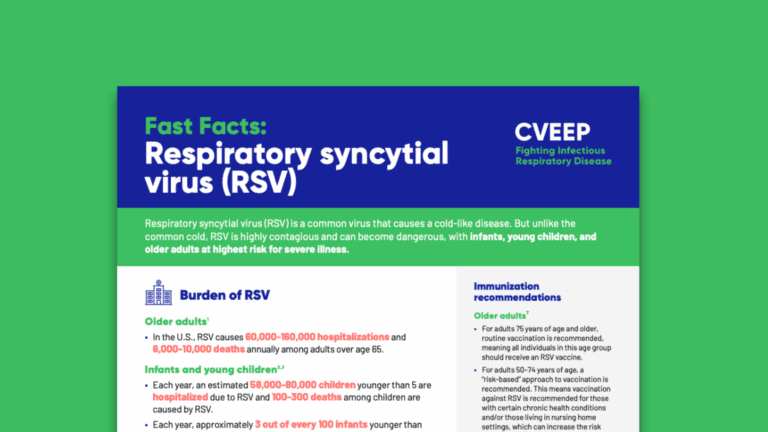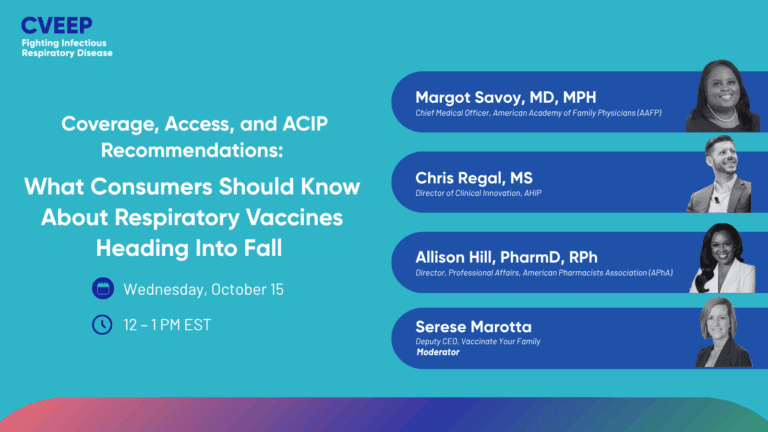Pertussis (Whooping Cough)
Need vaccine information?
Check out the resources below.
Pertussis (also called whooping cough) is a serious disease caused by a bacteria called Bordetella pertussis that can lead to uncontrollable coughing or difficulty breathing.
Whooping cough is particularly dangerous for infants. According to the Centers for Disease Control and Prevention (CDC), about 1 in 3 babies younger than 1 year old who get whooping cough will need hospital care.
Who needs to be protected?
The best way to help prevent whooping cough is to get vaccinated. CDC recommends that everyone — including infants, children, preteens, adults, and pregnant women — stay up to date with their whooping cough vaccines.
Because whooping cough is particularly dangerous for babies, vaccination is important for anyone who is around babies, including parents, siblings, grandparents, caregivers, and friends of the family.
What vaccine options are available?
There are two types of combination vaccines available to protect individuals from whooping cough and the vaccine you receive depends on age. Children younger than 7 years of age receive DTaP, while older children and adults receive Tdap. DTaP and Tdap vaccines also protect against diphtheria (“d”) and tetanus (“t”).
I’m feeling lousy. How do I figure out what I have?
Visit CDC’s website to learn more about symptoms for COVID-19, influenza (flu), whooping cough, pneumococcal disease, and respiratory syncytial virus (RSV).
Symptoms of whooping cough may include:
- Runny nose
- Fever*
- Mild, occasional cough (particularly for teens and adults)
- Coughing fits (particularly for infants), which may end with a high-pitched “whoop” sound, provoke vomiting, or result in a red or purple face
*There is some research that indicates that fever in older adults may be lower than the typical 101.4 F.
If you have symptoms for whooping cough, you may need to reach out to a healthcare provider for a diagnosis, which may require a physical exam and/or lab testing.
What should I do if I or a loved one has whooping cough?
It is important to follow CDC guidance to help protect yourself from severe illness and prevent spreading it to others. Early treatment can help make whooping cough less severe so talk with a healthcare provider about the best treatment option. Providers typically use antibiotics to treat whooping cough.
The Risks Are Real
The risks of infectious respiratory disease are real and vaccines are a critical tool that help protect against severe outcomes — particularly for children, pregnant people, older adults and those with underlying medical conditions.
Hear from health care providers on their stories and perspectives around the real impact of illness and the importance of prevention.
Hear from health care providers on their stories and perspectives around the real impact of illness and the importance of prevention.


